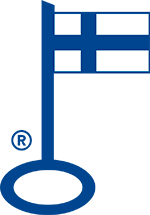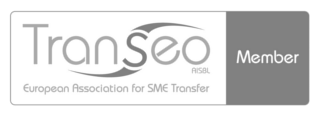Valuation of a business
“What makes a business valuable is the future that the business can help you reach” Juha Rantanen, CEO, Suomen Yrityskaupat Oy.
Just as there are no identical businesses or buyers, there are no identical changes of ownership either. The value of a business depends of the business itself, the world around it and the buyer as well as countless factors related to the aforementioned.
In practice, small and medium sized businesses’ values are defined in two ways: the business’ capitalized income value and the value of the business’ debt free assets or substance value. Although there are several valuation methods and defining value is demanding work, which should be done by professionals, it is useful to at least be aware of these two methods.
Capitalized income value
Capitalized income value is based on how much income the business will generate in the coming years with a new owner. For this, we need a realistic profit forecast, which adds up future revenue from for instance the next five years. The sum is the business’ capitalized income value.
The time period, from which the revenue is added up and how much it is depend on the business itself, the industry, the terms of available financing etc. The tax authority calculates capitalized income value solely based on previous years because that is sufficient in terms of taxation. A buyer buys the future, which means that a business must be valued based on the future.
A basic rule is that a business, which value is calculated based on income from under two years is cheap, and a business, which income is added up from over six years in expensive. This is due to the fact that business acquisitions almost always include banks and Finnvera as financers. Without them there would be virtually no acquisitions. Very few people buy businesses with only their own money. The financing of business acquisitions by financers conforms to the aforementioned timeframe. This means that the buyer must pay back the loan for the business acquisition including interest within two to six years. This is called the payback period for the business acquisition.
If the price of the business is high enough for the payback period of the loan to be for instance eight years, financing is extremely difficult to receive and the acquisition does not come off. Of course, there are exceptions to the rule. Most acquisitions are made with payback periods of two to four years and a significantly smaller amount with payback periods of five to six years.
The calculation of capitalized income value is based on the official income statements of previous years and especially the most recent ones. In order to come to the most accurate results for profit forecasts of the coming years, the calculation must be adjusted. The official calculations are made for taxation purposes and they do not reflect the business’ true ability to make money. The adjustments can better or worsen the official profit, but they must be made nevertheless. Here, expert advice is often needed.
Usually one tends to focus on the income statement’s adjusted operating margin when determining the value of a business. In this case depreciations among other things are not taken into account in the calculation. Depending on the manner in which the sale finally is conducted, other figures that describe profit can be considered. This means that you should prepare for surprising moves by the other party of the transaction no matter how you calculate the value of your business. There is not just one correct value, but several simultaneously. For this reason, our business acquisition experts will not give you just one figure as the value of your business, but a value range combined with a vast amount of explanations.
Substance value
Regardless of its fancy name, substance value is a really simple and easy valuation method compared to capitalized income value. Perhaps the fancy name was invented to balance its simplicity? The substance value is often the minimum price of a business. It is best calculated by deducting all debts from the last figure on the balance sheet. The final result is the business’ substance value. It is even easier to calculate if you look a little higher on the balance sheet. When provisions are added to the business’ equity the result is similar to the aforementioned subtraction. In short, substance value means the value of owned, debt free assets in the business.
However, business acquisitions are not as easy as this in practice. Again, the asset values on the official balance sheet are based on taxation and only show what the tax authority needs to know. This also needs to be adjusted, which means finding out the fair values i.e. market values of the different assets being sold. These include all kinds of premises, equipment and investments.
Fair value means calculating what for instance a 10-year-old cash register is really worth today. Generally its worth less than a brand new one. It can also be worth more. For instance real estate could be 50 000 euros on the balance sheet, but their fair value could be 500 000 euros. If this is the case, the total fair value can exceed the balance sheet total visible in the bookkeeping. Thus, it is worth going through some trouble when calculating the substance value.
In a functioning and healthy business, the capitalized income value generally exceeds the substance value. In these cases the starting point of sale negotiations is quite clear. The buyer is prepared to buy future profits and receives the assets of the business needed to generate them in the acquisition. However, if the substance value exceeds the capitalized income value, the situation becomes more difficult. Especially if the business has no surplus assets, that can be left out of the sale. In practice, this leads to a situation, where the business’ price is too high for the sale to go through. In this case, expert advice is essential, because the certainly difficult situation might not be hopeless.
When the value of the business’ shares as a whole is calculated, it does not necessarily mean that all shares are the same price. If for instance a minority interest is sold, the price of a share is closer to the substance value than the capitalized income value.
The composition of the final selling price
At least the following things can be part of a business sale:
1. the business’ shares or stakes, entirely or partially
2. the business operations including stock, machines, equipment, entirely or partially
3. floating assets, entirely or partially
4. fixed assets, entirely or partially
5. immaterial rights, entirely or partially
6. contracts
as well as several different combinations of the aforementioned. The final price and the manner in which the sale is executed form during the negotiations.
The price depends on the manner in which the sale is executed, the business’ income, assets, future prospects, condition, location, required changes, industry, financing arrangements and the buyer. For instance buying out competition can cost more than the capitalized income value indicates, but synergy, productional and competitive advantages, a more efficient operation, higher profit margins and fast market share growth provide good reasons to pay the asking price.
The most common business sale entails business operations and assets related to it. The advantage of this type of transaction compared to a share transaction is a smaller risk when it comes to unknown liabilities and obligations. However, buying the business’ shares makes the transaction process itself and maintaining operations simpler and faster.
A business sale can be compared to a real estate sale only when real estate is bought as an investment and put up for rent. Buying a home is not a valid comparison. If rent profits cover the acquisition’s loan instalments and interest, after which the new owner is still left with something, the price is appropriate. The same goes for business acquisitions. The business’ profits must cover the financing of the acquisition and loan instalments as well as guarantee the entrepreneur a good standard of living. If this isn’t the case, financers won’t lend and it won’t be worth it for any ordinary person to buy the business anyway.
Another reason for why the comparison to buying a home doesn’t fit is that it won’t pay back its loans and these need to be covered by other income. A business pays for itself. A correctly priced business that costs a million euros generates the loaned money with interest in for instance seven years. After this the buyer has debt free property worth a million euros, which will keep generating around 150 000 euros a year. Of course nothing happens on its own. The new owner must be able to replace the previous owner’s work effort, knowledge and skills.
The pricing isn’t normally based on the business’ capital. If the business makes little or no profit, the capital only has realizable value. However, a business making large profits could have the registers flowing over with money, but the buyer isn’t interested in applying for a loan, with which to buy the registers unless the price per bought euro is considerably less than a euro. Of course in some cases this would be rational.
The buyer also needs to consider if for instance starting a new restaurant is cheaper than buying one. The cost needs to be calculated correctly. The costs of starting a new restaurant include establishment costs, reparations or remodeling, permits, furniture, machines, equipment, tableware, logos, ads, brewery contracts, other supply contracts, slot machine contracts and equipment, sound systems, contracts with Teosto and the time used to acquire these. Even after acquiring and paying for all of this, the business’ future success is still completely uncertain.
When buying a business the business operations start immediately and customer flow and invoicing aren’t interrupted. The money which would be spent on buying a business is easily spent on marketing the business, acquisitions and establishment costs, but the results are uncertain. Starting a business isn’t much cheaper compared to buying one. In a new business, the future is completely uncertain and all customers must be lured away from competitors. Thus, the risks are greater when starting a new business compared to taking over an existing one as long as the business being sold is correctly priced.
The seller shouldn’t be charitable when selling their cash cow, but the buyer shouldn’t pay for the seller’s unfulfilled dreams either. The right price is a state of balance, where both parties and the financers are happy.
Only a realistic valuation gives value for money
A valuation should be made by a professional, who works with business sales. Only professionals have the required knowledge and experience of what it is possible to get in a business sale or what one should pay for a business. A business which has nothing anyone wants to buy has no value. Regardless of what the acquisition of the assets has cost the seller or what their worth is on the balance sheet. If the buyer is wealthy and can’t imagine a future without the business, a high price is attainable. The value of a business depends on the buyer and their purchasing power and motives, which means that a valuation that doesn’t consider a possible buyer is useless.
A business broker’s valuation is always based on reaching a situation, where the sale is actually possible. If no sale is made, the broker goes broke. This is sure to happen if the business’ valuation is unrealistic. This is why the broker must always strive for realistic valuations. A provision based commission encourages the broker to find a buyer, who the business is most suitable for. For these reasons valuations made by business brokers are very often the actual selling prices.
Small and medium sized businesses don’t have market prices. Seemingly similar businesses can be very differently priced. The general rule is that the larger profits or the longer payment time, the higher the price. Business acquisitions are mostly paid for by combining credits from banks and Finnvera, own money and the payment time set by the seller. A broker can help you with these issues as well. The right price is the price that makes the transaction happen. A price determined by an expert broker rarely comes down, unfortunately. One can always try, of course.
Order a valuation here







